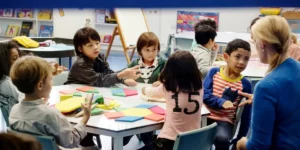When it comes to student mental health and well-being, what would you choose?
- A vaccine that prevents problems from arising in the first place?
- Or a medicine to address issues after they become severe?
This question captures the essence of the debate between Social and Emotional Learning (SEL) and the role of education counsellors in Indian schools.
The Rising Crisis: Why SEL is Needed Now More Than Ever
India is grappling with an alarming surge in student stress, mental health issues, and academic pressures:
- Student Suicides: Over 13,000 students died by suicide in 2021, averaging 35 deaths daily. Stress and academic pressure are among the leading causes (NCRB, 2021). For 2023-2024, the report pointed out that while the overall suicide numbers increased by 2% annually, student suicides cases surged by 4%, despite a likely “under reporting” of student suicide cases.
- Happiness Index: India ranks 126th out of 137 countries on the Global Happiness Index 2024, significantly trailing behind its neighbors like Nepal (78th) and Bangladesh (101st). In contrast, countries prioritizing mental well-being, such as Finland, rank at the top (World Happiness Report, 2024).
- Student Stress: According to a report by NCERT, over 70% of students in India report high levels of stress, driven by academic expectations, competitive pressures, and a lack of emotional support (NCERT Report).
These statistics highlight the urgent need for proactive measures like SEL to address emotional challenges before they escalate.
SEL: The Vaccine for Emotional and Mental Health
Social and Emotional Learning (SEL) is like a vaccine, designed to build resilience and emotional strength before problems emerge. By integrating skills such as self-awareness, empathy, and effective communication into school curricula, SEL lays the foundation for improved mental well-being.
How SEL Prevents Problems
- Emotional Resilience: Students develop the ability to manage stress and setbacks effectively.
- Better Peer Relationships: SEL reduces incidents of bullying and fosters a culture of empathy.
- Enhanced Academic Performance: Studies show SEL improves academic outcomes by an average of 11% (CASEL).
Education Counsellors: The Medicine for Existing Issues
Education counsellors serve as medicine, intervening when problems such as anxiety, depression, or behavioral issues have already surfaced.
Limitations of Counsellors Alone
- The student-to-counsellor ratio in India is 5,000:1, far below the recommended 250:1 by the American School Counselor Association (ASCA). This limits access to timely intervention (ASCA Guidelines).
- Counsellors address symptoms but often fail to tackle root causes like academic pressure and emotional isolation.
Prevention vs. Cure: What Should Schools Choose?
Imagine if every school in India made SEL a core part of its curriculum. Students would be equipped with tools to handle challenges constructively, reducing the need for reactive interventions.
Why Prevention is Better:
- SEL reduces instances of bullying, stress, and violence.
- It ensures students develop emotional intelligence alongside academic skills.
- Long-term benefits include creating happier, healthier adults who contribute positively to society.
Programs like Better Together Cubed (BT3) are leading the way by integrating SEL practices into educational ecosystems. BT3’s evidence-based methods benefit not just students but also educators and families, fostering holistic well-being.
Related Article: Launching Better Together Cubed (BT3) in India: Transforming Education with CASEL SELect Curriculum
The Choice is Clear
The debate isn’t about whether schools need SEL or education counsellors—it’s about which should come first. By prioritizing SEL, schools can significantly reduce the reliance on counsellors and shift the focus from crisis management to holistic development.
Prevention is always better than cure. India’s schools must adopt SEL as the vaccine for a healthier, happier, and more successful generation.





